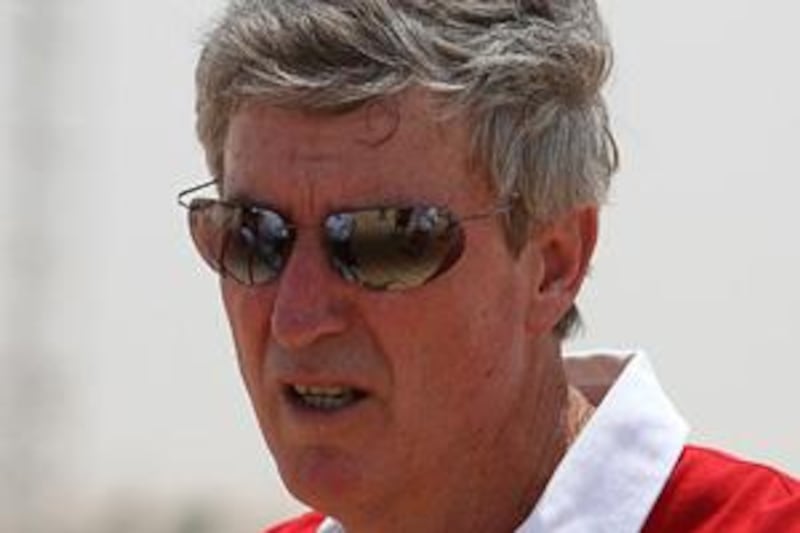DUBAI // The hosting of the World Cup Sevens in Dubai earlier this year played an important role in getting the sport into the Olympic Games, according to two men who helped bring the event to the country. Gary Chapman, the president of Group Services and Dnata, Emirates Group, was one member of the large team responsible for the city's bid and organisation of the event, held at The Sevens ground.
"Friday's vote was the culmination of a large, organised campaign from the International Rugby Board (IRB)," he said. "The IRB has been working on trying to get rugby sevens into the Olympics for quite some time and the World Cup Rugby Sevens in Dubai was one part of that campaign." At the International Olympic Committee (IOC) meeting in Copenhagen, Denmark, sevens was voted into the Summer Olympics line-up by a landslide 81 votes to eight. Golf was also included with 63 votes to 17.
"Dubai played an important role. The World Cup Rugby Sevens gave the IOC a very good idea of the attraction of the sport across countries, both in terms of playing and spectating," said Chapman. He added that relocating sevens from its old base at Dubai Exiles in Al Awir, to the custom-built Sevens ground on the Dubai to Al Ain Road in preparation for the Dubai Sevens tournament in November 2008 and then the World Cup Sevens in March 2009, had been a race against time.
"One of the many positive things to come out of this is that Dubai Inc got right behind it," he said. "The government, Emirates, the Arabian Gulf Rugby Football Union (AGRFU) and all the other bodies that made this happen were able to pull together and move the project rapidly in the right direction. "If we hadn't had that willingness to support rugby from the government we would never have been able to host an event of that magnitude and importance because we really didn't have that much time to do it."
Andrew Cole, the AGRFU chairman, said the influence of the Dubai tournament on the IOC's decision to include rugby sevens in the Rio de Janeiro Olympics could not be overestimated. "We are over the moon. The World Cup Sevens in Dubai was not only the most televised rugby sevens in history, but it helped the sport take that next step towards the Olympics," he said. "The IOC was clearly impressed with the event and Dubai has had a hand in doing something that will greatly benefit the sport for many years to come."
Cole added that Arab participation in rugby will also get a boost as Olympic funding for national development squads becomes available and comes alongside the IRB's plans to develop national associations in the Gulf within the next three years. "This is going to be a real turning point for rugby in the Gulf," he said. "The IOC's rules are different from the IRB's and you must be a passport-holder to represent a country in the Olympics. This gives Emiratis and any other Arab national an amazing opportunity to play for their country."
The inclusion of the women's game in the World Cup Sevens for the first time in March will also bring positive change into the sport. "If the women's game had not been run alongside the men in March, then we would not be talking about sevens as an Olympic sport now," he said. "The sevens format is fantastic for the development of the game, in both women's rugby and developing nations. Look at the rise of Kenya and countries like Samoa who have outstanding sevens teams."
@Email:stregoning@thenational.ae Golf a handicap at Olympics, s11





